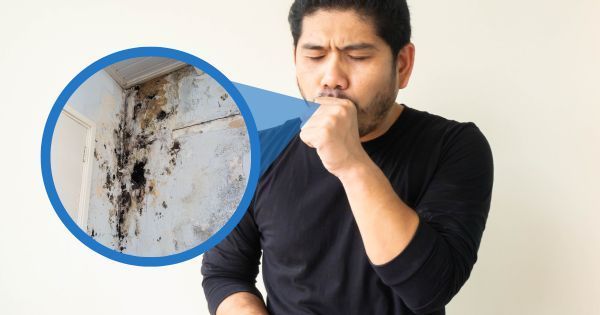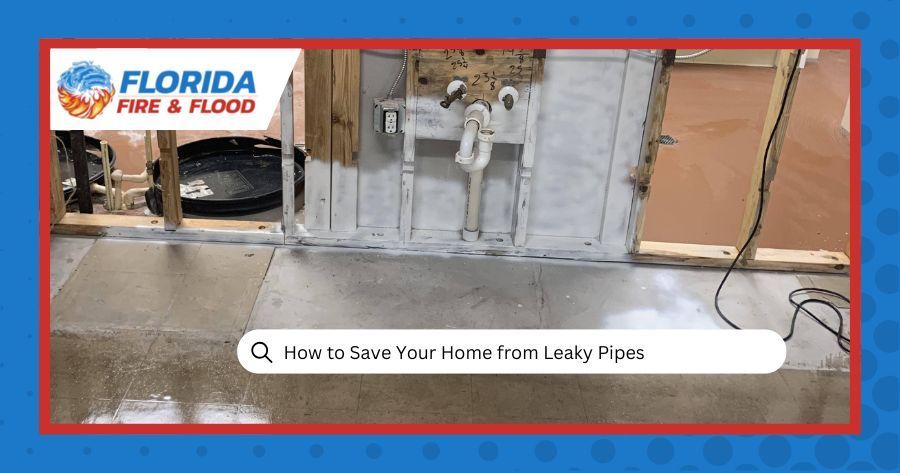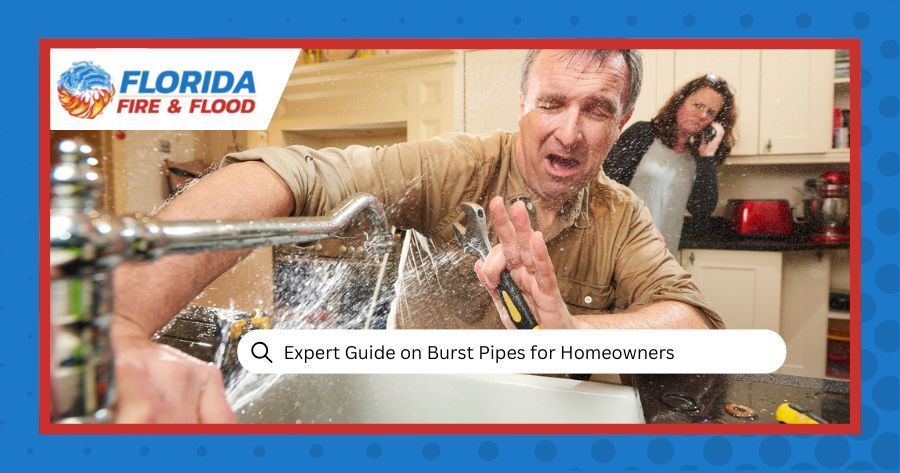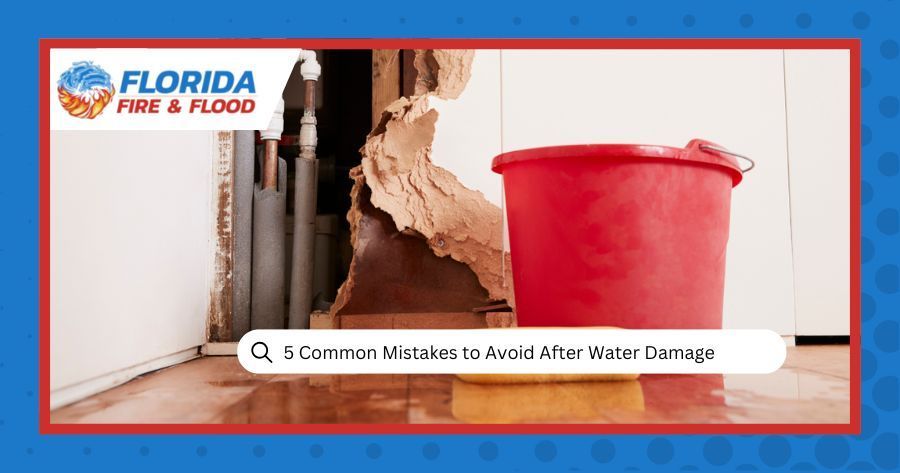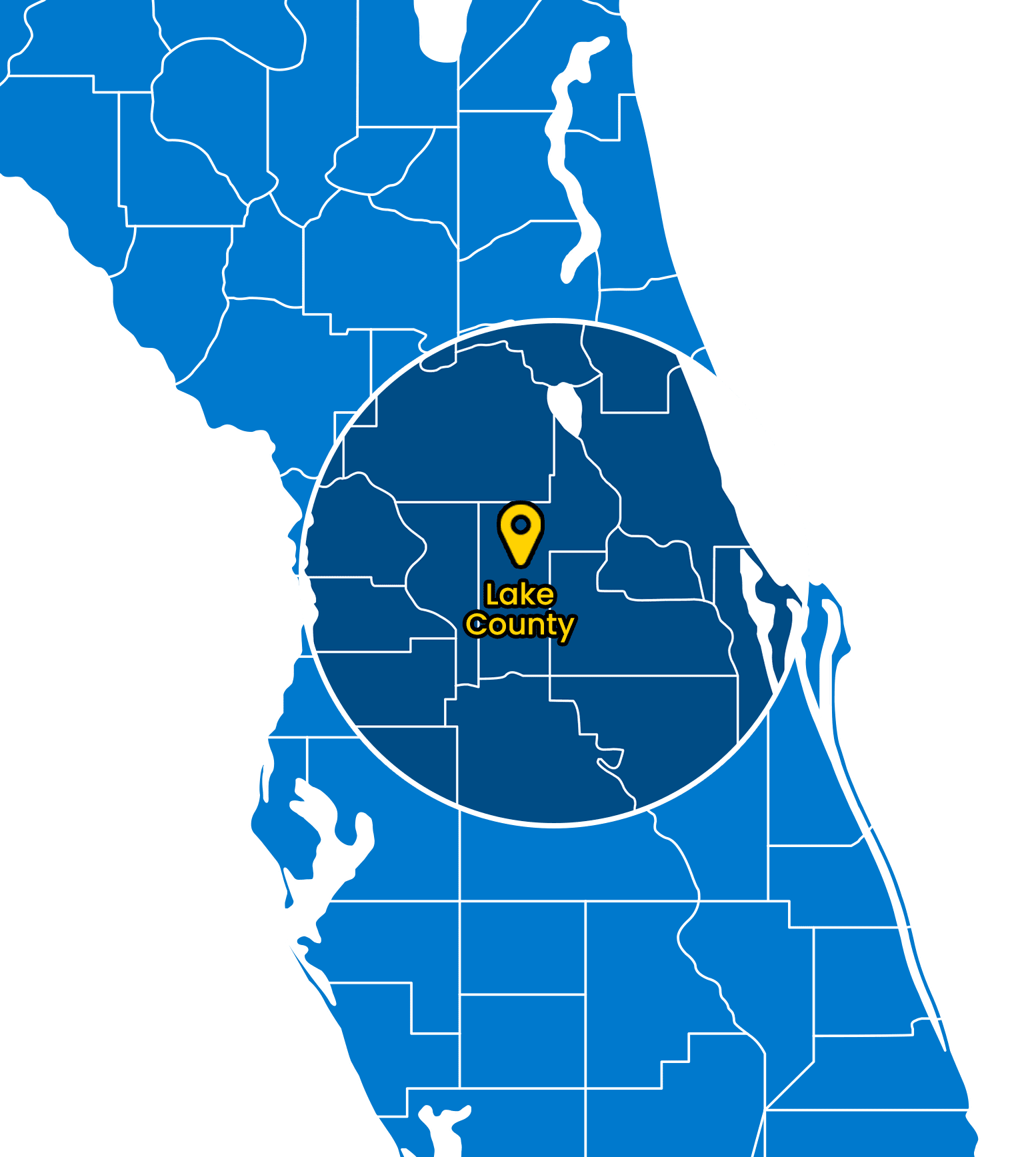AMRT - Applied Microbial Technician I, (Mold Remediation)
In the quiet corners of our homes, water damage and mold growth can silently wreak havoc on our well-being. Many homeowners might not fully grasp the potential health risks associated with these issues. In this blog post, we'll delve into the distinctions between water damage and mold, focusing on common types of mold resulting from water damage. Besides, we'll explore prolonged exposure to mold and the associated health issues. If you're seeking the services of mold remediation Winter Park FL, we might have a solution to ensure a healthier living environment for you and your family.
Understanding Water Damage vs Mold
Water damage and mold, although interconnected, exhibit different characteristics that require a closer look. Water damage, often triggered by common causes of water damage such as floods, leaks, or burst pipes, infiltrates our homes quietly yet profoundly. It can manifest as warped wood, stained ceilings, or the telltale scent of dampness. It can manifest as warped wood, stained ceilings, or the telltale scent of dampness. On the flip side, mold, a resilient intruder, flourishes in damp conditions and often emerges as an unwelcome consequence of untreated water damage.
Water damage sets the stage for mold growth by providing the ideal environment for spores to take root and flourish. To better understand this dynamic, imagine a leaky roof or a burst pipe - the dampness created becomes a breeding ground for mold colonies.
Recognizing the signs of water damage is crucial for preventing the subsequent onset of mold-related issues. Watching out for discolored patches, musty odors, or the gradual deterioration of building materials can help homeowners address water damage early on, reducing the chance of mold growth.
How to prepare for water damage restoration includes acting swiftly by seeking professional help to ensure a thorough cleanup and remediation process.
Mold vs Water Damage: Common Types of Mold as a Result of Water Damage
Hidden and often sneaky, mold silently finds its way into our living spaces, especially when water damage is ignored. Understanding the common types of mold that can result from water damage is crucial for homeowners facing this unwelcome intruder. These molds not only compromise the structural integrity of our homes but also pose potential
mold health risks to the residents. In the following sections, we'll shed light on a few of these common molds, exploring their characteristics and the dangers they may bring into our homes.
- Aspergillus: This mold is commonly found on damp surfaces and can lead to respiratory issues.
- Cladosporium: Thriving in cool and dark spaces, Cladosporium can be found on fabrics, wood, and even behind cabinets.
- Stachybotrys chartarum (Black Mold): Often associated with water-damaged materials, black mold is notorious for its potential health risks.
Black Mold vs Water Damage
While water damage is the initial culprit, providing the necessary moisture for mold growth, black mold distinguishes itself by its dark, greenish-black appearance and slimy texture. The concern with black mold lies in the potential production of mycotoxins, toxic substances that can have adverse health effects on individuals exposed to them. Water-damaged areas become breeding grounds for black mold, emphasizing the interconnected nature of these issues. Quick identification and remediation of water damage are essential in preventing the growth of black mold, safeguarding both the structural integrity of the home and the health of its occupants. If black mold is suspected, seeking professional mold remediation services becomes crucial for thorough and safe removal, ensuring a healthier living environment.
Read About - Difference Between Water Mitigation And Remediation
Health Issues Associated with Prolonged Exposure to Mold
Although water damage itself does not directly cause health issues, living in a mold-affected environment can pose serious health risks over time. Here are some potential health issues associated with prolonged mold exposure:
Respiratory Problems
Mold spores are well-known for their microscopic size, enabling them to float in the air easily. When inhaled, these tiny spores can reach deep into the respiratory system, triggering a range of respiratory problems. Constant exposure to mold may lead to chronic coughing, wheezing, and throat irritation. In some cases, individuals may experience difficulty breathing, especially those with pre-existing respiratory conditions.
Allergic Reactions
For individuals with mold allergies, mold exposure can initiate a range of allergic reactions. This includes sneezing, itchy or irritated skin, and nasal congestion. Mold spores can act as allergens, causing the immune system to release chemicals like histamines, leading to allergic symptoms. These reactions can vary in intensity, from mild discomfort to more severe allergic responses.
Aggravation of Asthma
Mold can be particularly challenging for individuals with asthma. The inhalation of mold spores can aggravate existing asthma symptoms, leading to more frequent and severe attacks. Wheezing, shortness of breath, and chest tightness may become more evident, posing significant challenges for asthma management. Addressing mold issues becomes crucial in providing relief to those dealing with asthma on a daily basis.
Compromised Immune System
Prolonged mold exposure has been associated with a compromised immune system. Mold produces mycotoxins, substances that can weaken the body's immune system, reducing its ability to defend against infections. A compromised immune system makes individuals more prone to infections, leaving them vulnerable to various illnesses. This is particularly concerning for individuals with pre-existing health conditions or those with weakened immune systems due to factors like age or medical treatments.
Understanding these health risks emphasizes the importance of addressing mold issues quickly. Taking preventive measures to remove mold from the living environment not only protects the structural integrity of the home but also safeguards the health and well-being of its occupants. If you suspect mold growth in your home, seeking professional help for thorough mold remediation becomes a crucial step in ensuring a healthier living space.
Contact Us at (352) 703-1326 for Fast and Expert Assistance with Water Damage and Mold
Living with water damage and mold growth can have a severe impact on your health. Understanding the common types of mold resulting from water damage and being aware of the associated mold health risks is the key. If you're in Winter Park, FL, and facing mold concerns, consider reaching out to professionals for mold remediation services to ensure an effective resolution. Your health and well-being should always be a top priority in the place you call home. You can choose our team at
Florida Fire & Flood as your trusted partner in these challenging times. Just call (352) 703-1326 or submit a
contact form on our website, and get a free estimate! We are available 24/7 for water damage and mold remediation emergencies!

